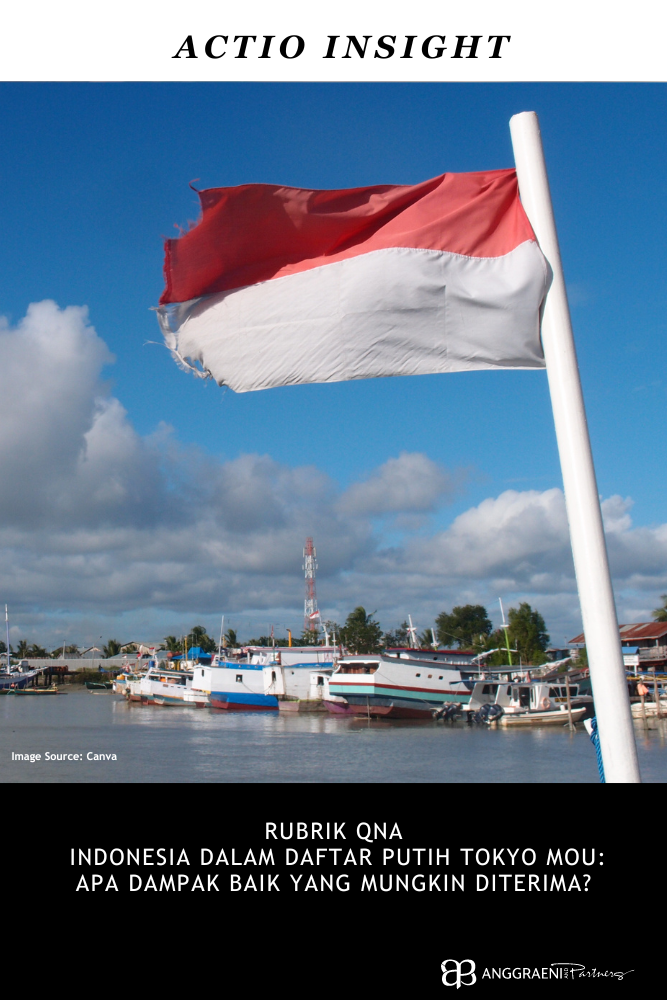- Home
- Capabilities
- ACTIO® Hub
- About Us
- Connect with Us
- AP Library
Every obligation is made either through an agreement or by operation of law, which imposes rights and obligations on every party.1 However, in practice not all obligations can be fulfilled by the parties. One of the reasons is because there is a force majeure.
Force majeure is generally understood to mean an unexpected circumstance, unintentional, and where the debtor cannot be held liable because the debtor is forced not to fulfill his obligation agreed to in the agreement.2 In other words, force majeure causes the debtor a justified reason not to fulfill his obligation.
To take an advantage of a Force Majeure, there must be no intention or fault on the part of the debtor.3 Furthermore, there are 2 types of force majeure, namely absolute and relative force majeure. An absolute force majeure is a situation where the debtor it is impossible to fulfill his obligation because the object of the agreement is lost, and it cannot be predicted beforehand. Meanwhile, the relative force majeure is a situation where the debtor has difficulty fulfilling his obligation because there is an event that prevents him from doing it, and it cannot be predicted beforehand.4
Force Majeure in Indonesia is regulated under the Civil Code. However, the Civil Code does not provide any explicit definition of force majeure. Nevertheless, some requirements can be concluded in order for an event to be considered as force majeure, with the following requirements:
1. The debtor does not carry out or delays in carrying out his obligation due to the event (Article 1244 of the Civil Code);
2. The Debtor does not have bad faith (Article 1244 of the Civil Code);
3. The Debtor does not carry out his obligation because of an unintended circumstance (Article 1245 jo. Article 1553 of the Civil Code);
4. If the debtor performs his obligation, then it will be deemed as a prohibited act (Article 1245 of the Civil Code);
5. The circumstance did not arise from the debtor’s fault (Article 1545 of the Civil Code).
Natural disaster is an example of force majeure that can cause the obligations agreed in the agreement to be unfulfilled or underperformed, which is often included in various types of agreements.5 However in order for a natural disaster to be categorized as force majeure, the Court will consider the events on a case-by-case basis. The following judicial decisions reflect the consideration of the judge who rejected natural disaster to qualify as a force majeure:
1. Supreme Court No. 2458K/Pdt/2008
Plaintiff and Defendant were bound in a coal purchase agreement. In practice, the Defendant admitted the delay of the coal delivery, the Defendant only delivered it to Philippines once and did not deliver it to Thailand at all. However, the Defendant claimed the coal delivery failure was due to rain which caused flood and the connecting bridge to the shipping area was damaged.
The tribunal (Judex Factie) stated that predictable rainfall cannot be considered as a force majeure. This statement was supported by witness statements which states that rain always falls in March, April, and May every year. There the Court declared the Defendant was in default.
2. Supreme Court No. 2301K/Pdt/2009
The Plaintiff is the owner of 70M and 72M material tower along with their complementary accessories, while the Defendant is a delivery service company. Both parties are bound by a goods delivery agreement. However, the Defendant neglected to carry out their responsibility of sending goods because KM. Kurnia, the ship which was used as delivery transport, had been attacked by storms and large waves which caused the ship to sink in the Juante Sea. The Defendant did not cover insurance for the goods even though it was the Defendant’s obligation under the agreement.
The judge stated that the Defendant should have covered insurance for the material tower before sending it to the destination. In conclusion, the sinking of the ship could not be used as a reason for force majeure which caused the Defendant failure to fulfill their obligation.
3. Langsa District Court No. 01/Pdt.G/2011/ PN.Lgs
The Plaintiff is a commercial agricultural StateOwned Enterprise while the Defendant is a company that has competence in managing plantations. The Plaintiff and Defendant were bound by the Plaintiff’s operational management agreement for palm oil plantation (“KSO Agreement”). The Defendant had an obligation to pay compensation of 1 billion every month and other costs as agreed in the KSO Agreement. However, the Defendant failed to pay until the Defendant had a debt of IDR 8.379.861.486,00 (eight billion three hundred seventy-nine million eight hundred sixty-one thousand four hundred eighty-six Indonesian Rupiah) to the Plaintiff. The Defendant argued that one of the KSO Plantation, Krueng Luas, was flooded so the KSO Management’s income was reduced and the Defendant faced difficulty to pay.
The Judge stated that: “Based on the statements from all witnesses, both from the Plaintiff and Defendant, there is a fact that every year floods occur at Krueng Luas for approximately 40 days. In addition, the position of the Krueng Luas is adjacent to the river so when the rainy season comes, overflow of a river can or always come close to the palm plantation every year. But this situation cannot be qualified as an unexpected situation, it can be predicted from the beginning and has been resolved at the time of aanwijzing.”
The Judge further stated:“The issue is how capable the Defendant is in anticipating these circumstances that can be estimated normatively because such data are contained in the tender document provided by the Plaintiff.”
Based on the judicial decisions above, it can be concluded that in Indonesia, natural disaster is not automatically categorized as force majeure which can be used to exempt the debtor from fulfilling his obligation. Even though a natural disaster occurs, a Force Majeure would not be recognised by the Court if the defaulting Party:
(i) could predict or contemplate the situation and/ or the event,
(ii) there is still other alternative for the debtor to carry out his obligation, and
(iii) the debtor did not do his best effort to overcome the situation.
In conclusion, natural disaster cannot generally be used as force majeure in these situations. It will of course be open for litigants to argue that a natural disaster was unpredictable, beyond contemplation, and was of such nature as rendering performance impossible despite his best efforts. We will have to wait to see how an Indonesian Court would deal with such a case. DRP/SCN/HES


